-
 Art of Wellness Acupuncture & Traditional Chinese Medicine (TCM)11704 Wilshire Blvd, Suite 295, Los Angeles, CA, 90025
Art of Wellness Acupuncture & Traditional Chinese Medicine (TCM)11704 Wilshire Blvd, Suite 295, Los Angeles, CA, 90025
myartofwellness@gmail.com310-451-5522 Office Hours
MonClosedTue7:30 am --4 pmWed7:30 am --4 pmThu7:30 am -- 4 pmFri7:30 am -- 4 pmSat7:30 am -- 4 pmSunClosedOur office opens from Tuesdays to Saturdays 7:30 am to 4 pm, will be closed on Memorial day, Independent day, Labor day, Thanksgiving day, Christmas and New year.
-
Recent Posts
- How to Treat Shin Splints With Acupuncture and TCM
- How to Treat Dysautonomia With Acupuncture and TCM
- How to Treat Myofascial Pain Syndrome With Acupuncture and TCM
- How to Treat Costochondritis With Acupuncture and TCM
- How to Treat Ankylosing Spondylitis With Acupuncture and TCM
- How to Treat Gastroparesis With Acupuncture and TCM
- How To Treat Sleep Apnea With Acupuncture and TCM
- How To Treat Baker’s Cyst With Acupuncture and TCM
- How to Treat Sinusitis With Acupuncture and TCM
- How To Treat Sjogren’s Disease With Acupuncture and TCM
- How to Treat Raynaud’s Syndrome With Acupuncture and TCM
- How to Treat Autoimmune Disorders With Acupuncture and TCM
- Sign up to receive news and updates and get my free report:“The Top 10 Reasons to Try Acupuncture”

May 2024 M T W T F S S 1 2 3 4 5 6 7 8 9 10 11 12 13 14 15 16 17 18 19 20 21 22 23 24 25 26 27 28 29 30 31
Skin
How to Treat Herpes Simplex With Acupuncture and TCM
By Qineng Tan, L.Ac., Ph.D. & Xiaomei Cai, L.Ac. Ph.D.
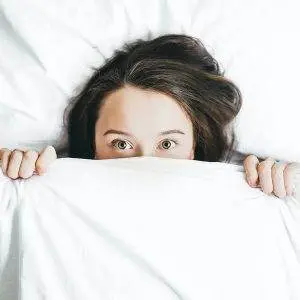
Cold sores around mouth, blisters on lips? Burning, itching sores around the genital area? Herpes simplex is a skin disorder caused by one of two viral infections: HSV-1 or HSV-2. TCM methods, including acupuncture and herbs, can help clear up a painful herpes outbreak and prevent herpes simplex outbreaks in the future.
Herpes simplex is one of the most common kinds of infectious disease, affecting several billions of people worldwide. It is estimated that about 66% of the world’s population has had a HSV-1 infection at some point in their lives. Herpes simplex virus type 1 (HSV-1) is the viral infection that is associated with oral herpes or orolabial herpes–the one that causes sores around the mouth, often referred to as “cold sores” or “fever blisters.” Herpes simplex virus type 2 (HSV-2) is the kind that causes genital herpes. Herpes virus is related to varicella-zoster viruses, the viruses that cause Chickenpox and Shingles.
How do you get herpes? The skin infection caused by herpes simplex spreads from person to person through close contact. HSV-1, or oral herpes, can spread through sharing utensils, toothbrushes, or towels, or by touching one of the mouth sores, or kissing. HSV-2, or genital herpes, is usually spread through sexual contact is therefore considered a sexually transmitted disease (STD). In fact, either one of the two viral infections can cause sores on the mouth or genital area, or even on other parts of the body. If oral herpes, or HSV-1, gets into the eyes, it can cause serious damage, even causing scarring or permanent loss of vision.
A person can pass herpes to another person even if they aren’t having an active outbreak with visible sores. A pregnant woman can pass the herpes virus to her baby during birth, and the virus can also be passed during breastfeeding. Once a person has been infected with HSV-2, the virus stays in the body and can lie dormant, then resurface in periodic recurrent outbreaks.
Initially, herpes skin disorders manifest in the skin cells, causing the red, painful, blister-like sores. After a while, the infection moves deeper, into the nerve cells, where it can lie dormant until something happens to activate it again, like an illness or stressful life event.
Medical treatment for herpes simplex focuses on minimizing the pain of an outbreak of sores and attempting to prevent future outbreaks with antiviral medications. People who have genital herpes must take care to practice safe sex and avoid sex during outbreaks in order to prevent spreading herpes to their partners. People with herpes can suffer from depression brought on by the knowledge that they may have to live with this highly contagious viral infection for the rest of their lives, and with the danger of possibly transmitting herpes simplex to others with whom they are intimate.
Fortunately, TCM herbs and acupuncture offer an alternative medicine option for dealing with herpes simplex. TCM can help with quick healing of the burning sores that signify an outbreak, but can also work on a deeper level to strengthen the immune system so that it can fight the virus better from within.
Top 5 Symptoms of Herpes Simplex
Signs of a herpes simplex infection depend on which type of viral infection you have, and where the infection spreads. Usually, symptoms manifest either around the mouth or genital area, but sometimes the herpes virus can spread to the eyes (herpes keratitis). The most common symptoms of herpes include:
- Itching, burning, tingling around the mouth or genital area
- Painful, fluid-filled blisters or sores around the mouth or genital area
- Flu-like symptoms: fever, body aches, swollen glands
- Trouble urinating, burning sensation when peeing
- Pain in eyes, cloudy vision
Once a person has had their first symptomatic period of a herpes infection, they may have recurrence of symptoms periodically–in some cases, frequently. The majority of people who have been infected with HSV-2 experience another outbreak within a year; some people experience recurrent outbreaks several times a year or as often as once a month.
There are a few other skin conditions that might sometimes be mistaken for herpes simplex. Impetigo is a bacterial infection that can cause red sores to form around the mouth and nose. “Jock itch” is a fungal infection that can cause a red rash in the groin area. Folliculitis is when hair follicles become inflamed and form pimples with pus; this can happen in the facial or genital region due to shaving, but it can also be related to herpes, if the viral infection causes irritation and blockages in the hair follicles. Molluscum contagiosum is another viral skin infection that causes raised lesions to form; however, they are generally painless and flesh-colored, not similar to herpes lesions. Bacterial vaginosis, a common bacterial infection which can cause a burning sensation in the vagina, may increase a woman’s chances of getting herpes and other STDs.
What Triggers a Herpes Outbreak?
The herpes virus is similar to the varicella virus (chickenpox) in that it stays in the body long after the initial infection, and can flare up and cause trouble later on. The varicella virus can lie dormant for many years, and then emerge as a case of Shingles late in life, causing a very painful rash.

Herpes can cause rare or frequent outbreaks, depending on the severity of the initial infection, how or if it was treated, and what sort of care a person takes to prevent recurrences. A person who has experienced recurrent outbreaks may become aware of early signs that show up a few days before sores actually break out on the skin, such as tingling or shooting pain in the genital area or around the hips or legs.
The things that can trigger a herpes simplex outbreaks include:
- Illness, fever
- Suppression or weakness of the immune system
- Exposure to sunlight, changes of the season or temperature
- Menstrual period, hormonal changes
- Prolonged period of stress, emotional stress
- Surgery, trauma
Medical Treatment for Herpes Simplex
The typical treatment for herpes simplex HSV-1 and HSV-2 includes the use of antiviral medications such as acyclovir (Zovirax), famciclovir (Famvir) and valacyclovir (Valtrex). These medications may be taken intermittently, to help treat outbreaks when they occur, or, in some cases, may be recommended for daily usage to help prevent outbreaks from occurring. For some people, these medications help to reduce the frequency of outbreaks, and there is some evidence that they may help prevent a person’s sexual partner from being infected. However, these antiviral medications do not help everyone who has herpes simplex. They can only reduce the spread of the virus in the body; they do not eliminate it completely. Some people may become allergic or resistant to the drugs. Some people experience side effects, including potentially serious kidney problems or unusual bleeding.
TCM treatment with herbs and acupuncture can help to reduce the severity of herpes outbreaks and prevent recurrence, without any negative side effects.
Can Acupuncture Help Herpes?
From the TCM point of view, the redness and burning of the blister-like rash that accompanies viral infections like herpes and varicella is caused by heat and dampness. Clearing heat and damp from the liver and gallbladder will usually be one of the primary goals of acupuncture treatment and herbal supplementation, as this will help to quickly cool down an outbreak of the painful sores. Maintaining the health and balance of the liver system long-term will help to prevent future outbreaks.
TCM also factors in emotional well-being when considering each individual’s presentation of a disease. The flare up of herpes simplex viral infection is associated with stress and negative emotions, especially anger. Anger is connected to the Liver and Gallbladder, and also to the eyes, which is why sometimes the herpes skin disorder will manifest in the eyes. Learning lifestyle behaviors and dietary choices that will help to balance the emotions and reduce excess heat in the body will also help reduce the occurrence of herpes flare ups.
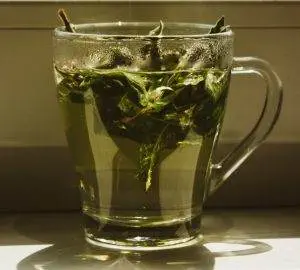
Some herbal formulations work well to heal sores related to herpes outbreak. There are also specific Chinese herbs that function as “antivirals.” These herbs can help control the virus in the body, which, when combined with treatment and herbs that strengthen the immune system, can be effective at reducing the risk of recurrent outbreaks of herpes.
Acupuncture Near Me for Herpes Simplex
While herpes simplex is often considered a disease one has to “learn to live with,” it is not necessary to suffer the pain and emotional burden of herpes simplex infection without relief. Alternative medicine for herpes in the form of acupuncture and herbs offers a holistic treatment option that can help relieve the physical symptoms of recurrent herpes outbreaks as well as associated mental and emotional struggles with shame, anxiety, depression, and relationship concerns. Boosting the immune system, strengthening the Qi and organ systems, reducing heat through proper nutrition, and relieving stress can all work to help people with herpes live free of the fear of the next outbreak.
*This article is for education from the perspective of Traditional Chinese Medicine only. The education provided by this article is not approved by FDA to diagnose, prevent, treat and cure human diseases. It should not stop you from consulting with your physician for your medical conditions. Traditional Chinese Medicine is based on Qi, which is an invisible force that usually cannot be observed by modern science. Because science focuses on testing ideas about the natural world with evidence obtained through observation, these aspects of acupuncture can’t be studied by science. Therefore acupuncture and Chinese herbs are often not supported by double-blind, randomized trials, and they are considered alternative medicine therapies in the United States.
How to Treat Hemorrhoids With Acupuncture and TCM
By Xiaomei Cai, L.Ac., Ph.D. & Qineng Tan, L.Ac., Ph.D.
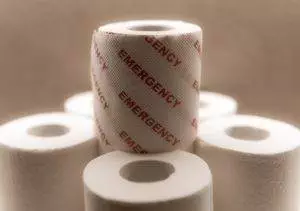
Bleeding and discomfort when you go to the bathroom? Burning or itching around the anus? Hemorrhoid pain is caused by swollen blood vessels around the rectum. Acupuncture and TCM reduce inflammation and can bring swift hemorrhoid relief.
Sometimes called “piles,” (from the Latin “pila,” meaning “balls”), hemorrhoids often do resemble little balls or clusters of grapes. The word “hemorrhoid” actually refers to the specific formation of blood vessels and cushioning tissues that surround the anus. Colloquially, though, the term is usually used to describe the condition of inflammation and irritation that can occur in this area.
Hemorrhoids are very common; probably more than half the population experiences them at some point in their life. However, the discomfort of talking to a doctor about hemorrhoids can be almost as miserable as the physical discomfort of having them, so many people avoid getting hemorrhoid help.
How do you know if you have a hemorrhoid? Sometimes people have a lot of itching, burning and discomfort after a bowel movement, or throughout the day. Sometimes there is no pain, but you may see a little bit of blood in the toilet bowl, or when you wipe with toilet paper. When you touch the area, you may feel a lump, or swollen tissue.
Hemorrhoids are generally classified into two categories based on their location: internal hemorrhoid and external hemorrhoid. Internal hemorrhoids form inside the anus and lower rectum and can cause bleeding, usually without pain. In some cases, though, the swollen veins can protrude out from the anal sphincter during or after a bowel movement and then need to be pushed back in. This is called a “prolapsed internal hemorrhoid.” The situation can become more serious if the internal hemorrhoid can’t be pushed back in, or if a blood clot develops in the vessel (thrombosis); then, it becomes painful to go to the bathroom, or even sit. In some cases, a prolapsed hemorrhoid becomes “strangulated,” meaning the blood supply is cut off, which can cause severe pain. Hemorrhoids become prolapsed because the connective tissues in the area weaken due to intense pressure, usually due to straining during a bowel movement, or because of the extra weight of pregnancy or obesity.
External hemorrhoids develop outside the anus, under the skin. These are the kind of hemorrhoids that tend to cause itching and a little bit of bright red bleeding. Again, they are aggravating, but not too serious unless a blood clot forms; then, it is called a “thrombosed external hemorrhoid.” This type of hemorrhoid can turn blue or purple in color and become acutely painful. In some cases, surgery will be performed to drain blood from the clot, or remove the hemorrhoid.
Most of the time, people suffer quietly with hemorrhoids, waiting for them to go away on their own. Only when they cause severe pain and bleeding are medical treatments considered. However, TCM and acupuncture offer a way to deal with hemorrhoids so that they heal more quickly and reduce the chance to return.
Top 10 Hemorrhoid Causes

What causes hemorrhoids? The tissues and blood vessels around the anal area can become weak, irritated, and inflamed. The upright posture of our human bodies naturally puts pressure on the elimination organs. Many women get hemorrhoids during pregnancy and/or birth because of intense pressure on the perineal area.The major reasons for hemorrhoids include:
- Pregnancy
- Constipation
- Diarrhea
- Sedentary lifestyle
- Straining while on the toilet
- Sitting too long on the toilet without progress
- Lack of dietary fiber
- Obesity
- Family history of hemorrhoids
- Aging
Overall, focusing on eating a diet that includes plenty of fiber, drinking enough water, maintaining good bathroom habits (going when you feel the urge and not waiting) and a healthy weight will go a long way towards preventing hemorrhoids. But what can you do when you already have hemorrhoids?
Treatment for Hemorrhoids

Often, people will just deal with hemorrhoid itching and pain on their own by using over-the-counter products like creams that contain phenylephrine, which constricts blood vessels (Preparation H), or disposable wipes impregnated with witch hazel and other soothing ingredients (Tucks medicated pads). These treatments may help reduce pain and swelling temporarily, but they do not get rid of hemorrhoids at their root.
When people do talk to their doctor about hemorrhoids, they may be prescribed something stronger, like a steroid cream, or hydrocortisone rectal suppositories.
If the situation persists or becomes more severe, there are several types of outpatient procedure to treat hemorrhoids, including rubber band ligation, sclerotherapy, infrared photocoagulation, and electrocoagulation. All of these procedures cut off blood supply to the hemorrhoid, so that it will form scar tissue and fall off. Hemorrhoid stapling and hemorrhoidectomy are outpatient procedures in which the hemorrhoids are surgically removed, and/or prolapsed tissues are affixed back inside the anus. While these surgeries may be helpful in some cases, recovery can be painful, and there can be problems with the way things work afterwards, potentially leading to more surgery later on.
When hemorrhoids are severe, it is a good idea to consult your doctor, as there are more serious conditions that may produce similar symptoms of pain, itching, or bleeding, including anal fissure (torn tissue or open sore in the anus due to trauma or Crohn’s disease complications), anal abcess (infected cavity in the anus) or anal fistula (an opening from the anal or rectal area that drains pus and/or fecal matter). Sometimes skin tags develop around the area where a hemorrhoid has healed. These can be irritating and difficult to keep clean, so they may need to be surgically removed.
For the treatment of hemorrhoids, TCM methods can provide relief from symptoms and help to reduce the inflammation that caused them.
Can Acupuncture Help Hemorrhoids?
According to TCM philosophy, hemorrhoids can often be related to a build-up of heat and/or dampness in the lower abdominal area; it’s the heat and dampness that cause the blood vessels to swell. You might be concerned by the idea that acupuncture treatment for hemorrhoids would involve needles being placed in a highly sensitive, private area. Let us reassure you this is not the case. The Du Mai meridian, also known as the “Sea of Yang,” is the channel which runs from the rectum area up along the spine to the top of head and then down to the mouth, controlling Yang energy throughout the body. We use points along this meridian, on the top of the head, and in other parts of the body to draw excess heat and dampness away from the area where the hemorrhoids are.
Other presentations of hemorrhoids include:
Top 5 Types of Hemorrhoids Presentation in TCM
- Spleen Qi Deficiency – This is when people tend to have poor digestion, bloating, gas, and diarrhea, going to the bathroom very often; the hemorrhoids feel swollen, but not as red. We use moxibustion to work on stomach point 36 meridian point, CV points 6 and 4, and spleen 6 in the middle of the abdomen to help digestion.
- Spleen Qi Sinking- This presentation tends to happen to people who are thinner, not only having hemorrhoids, but all the organs tend to be lower than usual; may also have prolapsed bladder or uterus, and poor digestion. Moxibustion applied to the middle of the top of the head will head the Qi rise up. For both types, doing Kegel type exercises regularly can help to strengthen the rectal area, also the uterus and bladder. Do three sets, increasing a bit every time: for example squeeze 30 times, release, do again 35, rest, next 40, then rest. Do this exercise every morning and evening.
- Blood Stasis – This type is more and more common because of our modern lifestyle, due to sitting a lot for work, which causes blood circulation to be compromised. In Chinese, we have a proverb: “for 10 people who sit too long, 9 will have hemorrhoids.” These manifest more as red, swollen, maybe bleeding. Kegels will also be helpful here, too.
- Lower Jiao Fire/Heat – This is when the lower part of the body has too much fire. For this type of hemorrhoids, people tend to have more bleeding, especially triggered by having alcohol, spicy food, crunchy food. These are the kind that may feel very sore with a burning sensation and tend to bleed, especially when wiping.
- Intestinal Dryness – especially here in California, where we have hot, dry weather, without a good habit of drinking water, people can tend to constipation, even going only once or twice a week. These types of hemorrhoids are due to dry, uncomfortable bowel movements, and may have itching and bleeding. Adding more water (warm is better) and more moisturizing foods (sesame oil and lots of ripe bananas, flax seeds, chia, sweet potato/yam, prunes) will be helpful.
Kegel type exercise is helpful for all of these types, to strengthen the sphincter muscle and bring more circulation to the area. Add more movement overall. At bedtime, leg lifts, bicycle movements in the air, upside down, are a good way to exercise without putting pressure on the lower body.
Ideally, when there is good digestion, between 5:00 – 7:00 a.m. is when people should naturally want to go, quickly, without too much need to push. Sitting on the toilet for too long creates the pressure that leads to hemorrhoids.
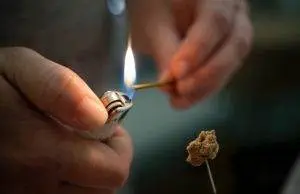
Moxibustion treatment–the burning of the herb mugwort near an area–can be very effective for reducing pain quickly. Chinese herbal formulations, used both internally and externally, can help relieve inflammation and pain. An herbal tea formula may include herbs to help strengthen the energy of the spleen, and to lubricate the digestive tract.
We also recommend sitz baths as a home remedy for hemorrhoids: short, 15-minute baths in warm water, to help soothe the area and keep it clean. Your acupuncturist may give you an herbal bath sachet to use to help reduce inflammation and soother the tissues.
One study of acupuncture treatment for internal hemorrhoids showed that, after 24 days, 86% of patients were “cured,” while another 8% showed significant improvement.
Your acupuncture practitioner will also talk with you about changes you can make in your diet and bathroom habits that will help you get things moving more easily.
Acupuncture Near Me for Hemorrhoids
Hemorrhoids are not only irritating; they are a sign that you may need to pay more attention to what you’re eating, and that you need to give yourself a little more time for relaxation, in and out of the bathroom. A combination of acupuncture, herbs, and other TCM treatment for hemorrhoids can help get the pain and swelling behind you.
*This article is for education from the perspective of Traditional Chinese Medicine only. The education provided by this article is not approved by FDA to diagnose, prevent, treat and cure human diseases. It should not stop you from consulting with your physician for your medical conditions. Traditional Chinese Medicine is based on Qi, which is an invisible force that usually cannot be observed by modern science. Because science focuses on testing ideas about the natural world with evidence obtained through observation, these aspects of acupuncture can’t be studied by science. Therefore acupuncture and Chinese herbs are often not supported by double-blind, randomized trials, and they are considered alternative medicine therapies in the United States.
How to Treat Lupus With Acupuncture and TCM
By Qineng Tan, L.Ac., Ph.D. & Xiaomei Cai, L.Ac., Ph.D.
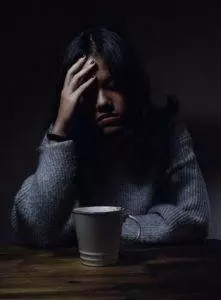
What is Lupus? Lupus is considered a chronic autoimmune disease, a condition which causes the immune system to attack the body’s own normal tissues. The most common lupus symptoms are extreme fatigue and a particularly characteristic lupus butterfly rash, a skin rash that appears on the face. Acupuncture and TCM treatment for lupus can help to relieve joint pain, inflammation, rashes, and fatigue.
Lupus is much more common in women than in men, and usually first appears during a woman’s reproductive years – between the ages of 18-45. About 90% of people who have lupus are women. Women of color have an even higher risk of developing lupus.
As with other autoimmune diseases, the precise causes of lupus are somewhat mysterious. What causes lupus is still not clear to medical researchers. It may have something to do with a person’s genetic makeup. Because lupus is so much more common in women, it is believed that it may have something to do with estrogen, the female hormone.
There are different types of lupus. Systemic lupus erythematosus (SLE lupus) is the most common form of lupus, and it can affect the whole body, causing widespread inflammation and serious chronic fatigue.
Cutaneous lupus erythematosus primarily affects the skin, causing rashes, skin lesions (discoid lupus), irritated blood vessels, photosensitivity, and hair loss. The most common chronic form of cutaneous lupus is discoid lupus erythematosus, which causes scaly, round lesions to form on the skin. People with skin lupus are very sensitive to sunlight and must take precautions to avoid too much sun exposure, or even fluorescent lights. Lupus rash may resemble a bad sunburn.
Lupus nephritis is a form of lupus that can negatively impact kidney function. Inflammation of the kidneys can lead to high blood pressure, or excess protein or blood in urine.
It can often take a long time to get a lupus diagnosis. There is no one test that can conclusively show that a person has lupus. Doctors will generally look at a person’s range of symptoms, and run a variety of lab tests. An antinuclear antibody test (ANA) can indicate if the body’s immune system is producing autoantibodies–antibodies that attack normal tissue. Lupus symptoms can change, seeming to come and go, or “flare-up” when a person is triggered by something in their environment–often light exposure or emotional stress. During other periods of remission, symptoms abate, and a person with lupus may feel well for a while until another flare occurs.
Often lupus causes extreme fatigue, to the extent that people may find it difficult or impossible to get on with their daily work and activities when they are in the throes of a flare-up. The combination of chronic pain and chronic fatigue can lead to feelings of depression. With this kind of disease, a defeating sort of cycle can develop, in which stress, anxiety, pain, and fatigue keep feeding and perpetuating each other. Lupus is also associated with fibromyalgia; sometimes the two conditions overlap. Lupus also bears some similarities to Ehlers-Danlos Syndrome (EDS), and inherited connective tissue disease.
There is currently no cure for lupus. Medical treatment usually involves the use of medications like corticosteroids to reduce inflammation. Acupuncture and TCM can be used as an alternative or adjunct therapy for lupus, as acupuncture can help alleviate systemic inflammation, reduce joint pain, and help to improve fatigue. Acupuncture can also help to relieve the physical and emotional effects of stress and depression.
Top 10 Lupus Symptoms
Lupus can affect each individual person differently. Signs of lupus that might occur in both men and women include:
- Fatigue
- Joint pain and swelling
- Swelling in hands, feet, and/or around the eyes
- Headaches
- Low grade fever
- Butterfly rash on face, sores around the mouth and/or nose (lupus erythematosus)
- Hair loss
- Sensitivity to light
- Raynaud’s disease – loss of sensation in digits, finger and/or toes turn yellow, white or blue when cold, or under stress
- Chest pain when taking a deep breath
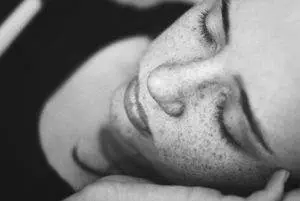
The lupus butterfly rash, also known as “malar rash”, may be the most distinctive symptom of lupus; it covers the cheeks and nose. The rash is red and patchy, caused by the dilation of capillaries under the surface of the skin, known as erythema, or lupus erythematosus. This lupus rash does not appear in every case, but it may appear in the majority of cases.
Other lupus symptoms can include: sores around the mouth, dry eyes, a rash around the eyes, problems with memory, a tendency towards anemia, and a higher risk of blood clots.
Lupus anticoagulant (LA) is an antibody that is abnormally produced in some people with lupus. While its name sounds like it works against clotting; it actually does the opposite. High levels of LA can cause inappropriate blood clotting, or thrombosis. This problem can cause increased risk of miscarriage in women. Some people have LA without necessarily having lupus.
Women may experience menstrual problems like irregular periods or heavy bleeding that are related to lupus. Women with lupus are also at a higher risk for developing heart disease, kidney disease, and osteoporosis. Lupus symptoms women of color, in particular, (African-American women and Hispanic women) may develop are serious complications related to lupus at a younger age, including an increased tendency to suffer from seizures, strokes, and swelling around the heart.
Lupus Treatment
Rheumatologists specialize in treating musculoskeletal problems and the autoimmune diseases that often cause joint pain and inflammation, like rheumatoid arthritis, osteoarthritis, fibromyalgia, Lyme disease, and gout, as well as lupus.
Symptoms of joint pain due to lupus are usually treated with steroid medications like prednisone that help to reduce inflammation. Hydroxychloroquine, (an anti-malarial medication), is often prescribed to help prevent flares of symptoms from SLE lupus. Unfortunately, both of these types of medications can cause serious side effects, especially when they are used on a long-term basis. They do not address the root causes of lupus.
A relatively new treatment for lupus, Benlysta, is administered intravenously. It works by blocking a kind of protein that is involved in the production of autoantibodies – the immune cells that attack healthy tissues. This treatment, while different from other immunosuppressive drugs, can also cause side effects, including being more susceptible to infections. Some people have a severe allergic reaction to Benlysta, while others experience insomnia and severe depression.
Acupuncture for lupus and other rheumatologic conditions offers relief from painful symptoms and chronic fatigue without negative side effects.
How Can Acupuncture Help Lupus?

Lupus manifests as massive systemic inflammation in the body: in the tissues, organs, skin, and joints. Western medicine tends to always rely on cortisone/steroids to deal with inflammation, but this only works temporarily, like a band-aid.
Even though we don’t know exactly what causes lupus, we do know it is an endocrine disorder, or an inherited condition, or something in the environment that is causing the body’s atypical autoimmune response.
According to TCM, inflammation comes from too much heat in the body, or what we call “empty heat:” a lack of fluid. Without sufficient water, the body can’t control excess heat. We call this yin deficiency or kidney yin deficiency. This excessive heat condition can be triggered by external forces like the heat and light of the sun’s rays, or by spending a lot of time in a hot, dry space with a heater and no humidifier. This is part of what might cause the inflammation, fevers, and skin rashes associated with lupus.
Lupus nephritis, which involves the kidneys, is viewed by TCM as being related to deficiencies of qi or yang energy in the kidneys and spleen. Blood stasis can also be a part of the presentation. Treatment with acupuncture and herbs will often focus on removing blockages that cause stagnation of blood and qi, strengthening the kidneys, and clearing heat and toxins from the body.
Clinical trials in China have compared patients with SLE lupus treated with prednisone only to those treated both with steroids and Chinese herbs, and found that patients receiving TCM treatment as an adjunct fared better overall and were able to reduce their use of the steroids.
One study showed that 80% of participants experienced a significant improvement in joint pain, fatigue, and skin rash after ten sessions of acupuncture treatment.
Another case study of patients with discoid lupus showed that lesions had improved by 87% after receiving a course of auricular-acupuncture (ear acupuncture) therapy.
Top 3 Tips for Helping Lupus Naturally
Reducing inflammation at its source usually means making some changes in behaviors. Not only lupus, but other chronic illnesses like cancer, rheumatoid arthritis, etc. have so much to do with lifestyle and habits that are not conducive to optimal health. For a more thorough discussion of how to eat right and manage your habits to reduce inflammation, see our blog article specifically addressing Inflammation. Here are some basic anti-inflammatory habits to embrace:
- Reduce or eliminate all non-necessary drugs and medications. Long-term reliance on drugs to cover up pain hampers your ability to know what is really going on with your body. It also potentially damages the immune system and organs.
- Reduce or eliminate foods that create more heat and and acidity in the body. This includes coffee, alcohol, red meat, spicy foods, and crispy, fried foods. TCM nutrition provides very specific guidelines for warming and cooling foods, so working with a qualified acupuncture professional will be very helpful to each individual patient.
- Get adequate sleep – ideally, eight hours every night. This is when the immune system repairs itself. When people go for years, only sleeping three or fours hours a night, they can do serious damage, causing massive problems like lupus to develop.
It is up to you to care for your body as if it were your most precious resource, because it is. When you make your health your top priority, every decision you make about what to eat, when to sleep, and how to spend your time and energy matters. Be mindful of your own needs; don’t cover up your pain with drugs, or trash your body with junk food. Your best chance for a happy life starts with healthy habits.
Acupuncture Near Me for Lupus
Autoimmune disorders like lupus can be devastating, not only because they are physically and mentally debilitating, but because they can be so difficult for doctors to understand and treat effectively. The TCM approach to lupus is holistic and takes into consideration a person’s foundational constitution, lifestyle, and emotions, as well as looking carefully at which imbalances in the organ systems are causing the physical symptoms. If you have been diagnosed with lupus, or are not sure about what might be causing severe fatigue, joint pain, or skin rashes to flare up periodically, working with an experienced acupuncture practitioner may help you to manage these symptoms and experience a marked improvement in your quality of life.
*This article is for education from the perspective of Traditional Chinese Medicine only. The education provided by this article is not approved by FDA to diagnose, prevent, treat and cure human diseases. It should not stop you from consulting with your physician for your medical conditions. Traditional Chinese Medicine is based on Qi, which is an invisible force that usually cannot be observed by modern science. Because science focuses on testing ideas about the natural world with evidence obtained through observation, these aspects of acupuncture can’t be studied by science. Therefore acupuncture and Chinese herbs are often not supported by double-blind, randomized trials, and they are considered alternative medicine therapies in the United States.
How to Treat Hives With Acupuncture and TCM
By Qineng Tan, L.Ac., Ph.D. & Xiaomei Cai, L.Ac., Ph.D.
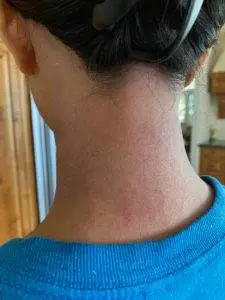
Skin rash with itchy welts or red bumps that seem to appear suddenly, then move to another part of the body, or go away? Hives, also known as urticaria, are caused by a type of allergic reaction that creates a temporary rash or swelling of the skin. TCM and acupuncture have been used for centuries to help relieve hives caused by allergies.
Hives are fairly common, occurring in about 20% of people of all ages. An acute, or short-lived, case of hives may occur because of being exposed to some unusual, new chemical or natural irritant in a person’s environment, maybe in some product, or some pollen or bug. These usually go away quickly, and it may be fairly obvious what it was that caused the outbreak of hives. However, sometimes people develop chronic idiopathic urticaria (CIU), in which a person may break out in hives often on an ongoing basis and have no idea why it keeps happening.
Allergies can manifest in many ways: sometimes causing sneezing, watery eyes, or skin problems. Hives are another way that an allergic reaction can show up. Hives, or urticaria, are distinguishable from other types of skin rash, like dermatitis eczema, or shingles rash, because, unlike other rashes, they do not form fluid-filled bumps or cause dryness, scaliness, or cracking of the skin. Rather, hives are raised welts on the skin that appear red, but then turn white when you press on them; this is known as “blanching.” Hives can look like small, narrow lines, or big, patchy blotches.
Urticaria is related to, and sometimes confused with, angioedema, which is a similar condition, in which deep layers of skin become swollen, often around the eyes and mouth, also due to irritation by some allergen. Angioderma can coexist with hives, and can be more dangerous than hives, if it causes tissues in the throat or tongue to become so swollen that the airway is blocked.
Hives often clear up on their own within a few days or weeks without any treatment. However, some people develop chronic hives, in which the hives rash keeps recurring for weeks or months, or longer. Chronic hives can be a uniquely painful and frustrating condition; never knowing when you might break out into a burning, itchy rash. Hives worse at night or hives worse after sleeping are common experiences for people who suffer from chronic urticaria. Breaking out in hives can make a person feel panic, making it very difficult to get on with daily tasks. Acupuncture treatment can help alleviate the burning and itching of acute hives or chronic hives, and help relieve the allergies, stress, and other underlying conditions that bring them on.

Top 10 Hives Causes or Triggers
In general, what causes hives most of the time is an allergic reaction to some external stimulus. Touching something, eating something, or inhaling something that you are allergic to can cause urticaria to break out on the skin, sometimes briefly, sometimes moving around from one area or the skin to another, or seeming to spread over the skin. Things that can cause hives include:
- Foods, especially those that are well-known allergens like nuts, shellfish, dairy, and eggs, but also fruits, especially citrus fruits
- Contact with certain plants
- Pollen in the environment
- Medications, including antibiotics, OTC pain relievers
- Latex
- Pet dander
- External stimuli from the climate – sun exposure, heat, cold
- Bacterial infections in the body, like strep throat or a UTI
- Viral infections in the body, like colds, hepatitis or mononucleosis (viral hives)
- Blood transfusions
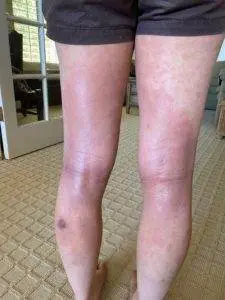
Insect bites or itchy rashes that cause you to scratch at your skin can also cause hives to appear in other areas. Simple pressure on the skin, from sitting or leaning on a patch of skin for a long time, can cause hives. Some people break out in hives when they are under a lot of pressure or emotional stress, even if they are not aware of having allergies or other underlying causes for hives. Sometimes this is called a “stress rash.”
Treatment for Hives
Hives are most commonly treated with antihistamines, which can help relieve itching. Many people experience some type of side effect from taking antihistamines, including: headache, drowsiness, fatigue, and hay fever type symptoms. Some people do get relief from a temporary hives rash after taking Benadryl or something similar. But for others, it may not help, and then doctors often prescribe a corticosteroid as an anti-inflammatory. If steroid treatment for hives does not help, immunosuppressants may be recommended. Depending on the root cause of the hives, these types of pharmacological solutions may or may not work to relieve hives. Acupuncture and TCM treatment focuses on solving the deeper problems that cause hives, without any negative side effects.
How Can Acupuncture Help Hives?

As we have seen, conventional western medicine mostly looks at hives in terms of allergies. But in order to resolve the hives, we have to look more closely at why a person has those allergies. Why are some people affected so strongly by certain foods or certain environmental conditions while other people are not affected at all? We have to consider a person’s constitutional health.
As we have discussed in other articles, in TCM the concept of Wei Qi refers to the body’s protective defenses, the action of which stems mainly from the lungs and the skin. Many types of illness are considered to be related to a weakness or breakdown in the Wei Qi that allows external pathogenic factors to enter the body and take hold. Wind is one such external pathogenic factor. Heat and cold are others. Viral and bacterial infections also find their way into the body when the Wei Qi energy is weakened.
6 Pathogenic Factors According to TCM:
- Wind
- Cold
- Summer Heat
- Dampness
- Dryness
- Fire
Hives come mostly from wind and heat. In TCM, urticaria is known as Feng Zhen Kuai, or “wind rash patch.” Wind describes the nature of urticaria rash in the sense that the hives welts come and go, as if blown about.
When people get hives, it is usually because of one of a few common factors.
- Yin deficiency/Dryness – If the body is too dry, when any allergens get in, there is not enough moisture in the body to wash them out of the system; this causes the breakout.
- Fire/Heat – If there is too much heat, fire, and inflammation in the body, when there is exposure to allergens, the body can’t take any more and will break out.
- Liver stagnation with Heat – When a person is under stress for a long time, it can exacerbate stagnation of Qi in the liver system, which over time causes heat to build up, then the body cannot process little irritations. The liver and kidneys have to do all the work to filter toxins out of the body, but when those organs are overstressed, the body will try to get rid of excess heat through the skin.
Usually, if a person is having chronic hives, it has a lot to do with their food and their habits around their exposure to the elements. For example, in the winter time, in order to be harmonious with the season, the body is meant to experience cold. But many people keep the heater on and keep their environment very warm all the time. This leads to dry air and can cause even people without any allergies to feel itchy. People also tend to take long, hot showers, which can destroy some of the skin’s natural protective layers and cause it to be raw and easily irritated.
In western thought, when a person has a reaction such as hives to certain foods (spicy foods, alcohol), it is thought of as an allergic reaction, but in Chinese medicine we see this as being the body’s reaction to too much heat. If a person already has a fiery constitution, or liver stagnation, and then there are external hot conditions, and hot foods coming in all at once, the internal heat can explode out, creating the burning rash on the skin.
Cupping can be very helpful for treating hives; it exfoliates the skin and helps to draw toxins out. This will help to cool down the hives outbreak. Then we go further with acupuncture and herbs to strengthen the lungs, the liver, and the Wei Qi.
A systematic review of clinical trials studying the use of TCM methods and acupuncture to treat hives, both as an alternative and an adjunct to medication treatment, concluded that acupuncture is a safe and effective way to reduce symptoms of hives or chronic urticaria. Chinese herbs are also well-known for helping to relieve hives.
Top 5 Tips for Hives Relief

How to get rid of hives for good will mean paying attention to what triggers the rash for each individual. To avoid this kind of allergic reaction hives, protect your Wei Qi with healthy habits. Prioritize rest and good nutrition to build up your immunity and protect your lungs and skin.
- Avoid a cold wind blowing on you, whether outside, or from a fan or air conditioner. Dress appropriately; always bring an extra layer so you don’t catch a chill or have a bright sun shining on your skin for a long time when you didn’t expect it.
- Avoid very hot showers, baths, saunas, etc.
- Engage in regular exercise to help boost your blood circulation; walking is always ideal. This will help to reduce stress, as will a meditation practice.
- Get plenty of rest. Good quality sleep is essential to help build up the Wei Qi.
- Avoid foods that are either too hot (spicy or fried, red meats) or too cold (raw foods). No alcohol or coffee. These triggering foods and beverages can really make the hives worse. Drink more water to eliminate the dryness in the body.
If a patient is having trouble figuring out what it is that is causing his or her hives breakouts, a TCM provider may be able to find the underlying reason behind the rash.
Acupuncture Near Me for Hives
People of all ages can receive acupuncture treatment for hives and allergies like hay fever. The doctors at Art of Wellness have been helping people get relief from allergies and itchy skin conditions for over three decades. We can provide help for children with hives with herbs and acupuncture. If you or someone you love is suffering from hives, please consider giving TCM and herbs a try.
*This article is for education from the perspective of Traditional Chinese Medicine only. The education provided by this article is not approved by FDA to diagnose, prevent, treat and cure human diseases. It should not stop you from consulting with your physician for your medical conditions. Traditional Chinese Medicine is based on Qi, which is an invisible force that usually cannot be observed by modern science. Because science focuses on testing ideas about the natural world with evidence obtained through observation, these aspects of acupuncture can’t be studied by science. Therefore acupuncture and Chinese herbs are often not supported by double-blind, randomized trials, and they are considered alternative medicine therapies in the United States.
How to Treat Aging Skin With Cosmetic Acupuncture
By Xiaomei Cai, L.Ac., Ph.D. & Qineng Tan, L.Ac., Ph.D.
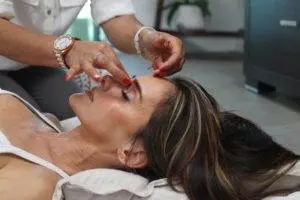
Looking for a treatment that can help smooth fine wrinkles, boost collagen and firm skin? Maybe you’ve heard about cosmetic acupuncture, also known as facial rejuvenation, or an acupuncture face lift, and you’re wondering if it really works. TCM and acupuncture offer a natural, health-centered skin care alternative to surgery and other procedures for people of all ages who want to look younger and more well-rested.
We all want to look in the mirror and see ourselves looking our best. Cosmetic procedures like plastic surgery and minimally-invasive aesthetic treatments have increased by well over 200% in the past twenty years. People of all genders and ages are showing more interest than ever in anti-aging treatments that can tighten, tone, and brighten the skin, banish puffiness and dark circles under the eyes, clear acne blemishes and scars, and reduce the appearance of wrinkles. While advances are continually being made in the field of aesthetic medicine, and the stigma surrounding such treatments has been largely reduced, some of these procedures can be harsh and invasive. Many people may prefer to seek a natural alternative.
The TCM approach to skin care is holistic and health-oriented, focusing on creating healthy, lively skin from the inside out. Finding the root internal causes of dull, sagging skin, lack of muscle tone, dryness and other skin problems, and treating them with targeted acupuncture points, herbs used both topically and internally, and the right nutrition program, can all lead to a more youthful and invigorated appearance. The results, of course, will not change your face so dramatically that you look like a different person. It is important that any time you consider an aesthetic procedure, you manage and maintain realistic expectations. But cosmetic acupuncture treatment can help you to feel better about yourself, inside and out.
What Is an Acupuncture Face Lift?
Cosmetic acupuncture, while seeking to improve the overall appearance of the face and neck, is really based in optimizing the patient’s health throughout the body. Acupuncture needling works on several levels. Usually, we explain how stimulating points with acupuncture affects Qi (life force energy) as it flows through the meridian pathways of the body, producing changes in the function of the organ systems. But it also works on the skin-deep level, creating micro-trauma to the skin and underlying tissues that triggers repair and rebuilding. If you have had acupuncture before, you might have felt your acupuncturist gently turn the needles after inserting them. Research has shown how this age-old technique actually does produce a direct effect on collagen fibers. This is partly why acupuncture treatment helps you heal from musculoskeletal injuries and chronic pain conditions. It also helps your skin heal and regenerate.
Acupuncture is also proven to aid in the release of endorphins, which help you feel happier and more relaxed. We all know that a positive outlook can do wonders for your looks. Acupuncture treatment not only gives you the appearance of being well-rested; it actually helps you sleep better and relieves stress that can cause frowning and worry lines.
Your practitioner will choose specific acupoints to target your individual needs, addressing other skin concerns in addition to the signs of aging, including acne and rosacea.
Often, people notice a difference in their appearance right away, as even one treatment can help the skin take on a new glow, and most people emerge from their acupuncture session feeling that they have had a good rest. Generally, we recommend that, in order to see noticeable results, you start with 1-2 treatments per week for at least a few weeks, then continue with a monthly treatment to maintain the results.
A scientific study used topographic imaging to measure the contours of patient’s faces as they underwent a course of five cosmetic acupuncture treatments. The researchers concluded, based on the images and patients’ self-assessments, that facial cosmetic acupuncture produced significant improvement in skin elasticity.
A systematic review of TCM cosmetic acupuncture study data showed that patients reported positive results, including: fewer wrinkles and better skin condition, with improved moisture content.
Cosmetic Acupuncture Vs. Botox
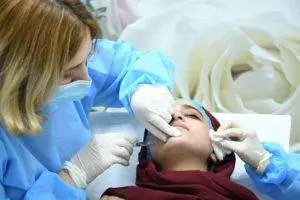
In recent years, Botox injections have become an extremely popular and acceptable way to combat the primary “problem” of aging skin: wrinkles. Facial skin is creased every time we move the facial muscles to express ourselves. Over time, as skin loses its elasticity, these creases become deeper and more defined. Botox (short for botulinum toxin) is a paralytic agent, which means it temporarily “freezes” or paralyses the muscles that lie under the skin of the face, so that they will not move when a person frowns or smiles. This helps prevent the formation of deeper lines between the eyebrows, for example, or along the nasal-labial folds on either side of the mouth.
While Botox injections are widely considered safe these days, there are risks involved with treatment. Minor short term side effects can include redness, swelling, headaches, or nausea. In some instances, the muscle paralysing action can spread to more necessary parts of the facial musculature, causing speech problems, trouble swallowing, or trouble breathing. It can also cause parts of the face to droop due to muscle weakness. While many people have experienced satisfaction with wrinkle reduction due to Botox treatment, we have probably all noticed cases in which a person ends up looking unnaturally startled, lop-sided, or simply incapable of normal expression.
The effects of Botox are temporary, and in order to maintain the smoother skin, people must return for more injections every few months. Facial acupuncture, too, should be performed regularly to maintain results, but TCM offers a more comprehensive approach to smoothing and preventing wrinkles by boosting collagen production and circulation, improving skin elasticity. Massage techniques such as Gua Sha can firm and tone the facial muscles so that the whole face still moves naturally. Botox injections don’t do anything to improve the health of your skin or light up your eyes from within. Facial rejuvenation with TCM is essentially a risk-free procedure that can provide natural-looking results.
The TCM Approach to Skin Care
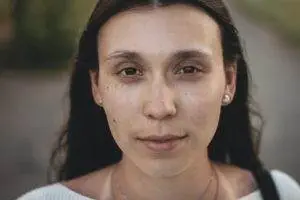
One of the subtler techniques used by TCM practitioners is that of examining a patient’s physiognomy; that is, deducing problems of physical, emotional, and spiritual health by “reading” a person’s face. We can also tell a lot about a person’s internal condition by studying the skin and nails on their hands. This is an art that the acupuncturist can only master with many years of experience.
For example, if there is a tendency to develop dark circles or bags under the eyes and bruise easily, this indicates a stagnation of blood circulation. That deep crease or “frown line” between the eyebrows may indicate a Liver Qi stagnation. The acupuncturist will choose points to stimulate based on each individual’s constitution, working on deeper levels of stagnation in the organ systems, while also targeting specific muscles in the face and neck that need toning.
Naturally, we also use herbs to help nourish the skin. Traditionally, poultices or face masks have been used to directly bring nutrients to the facial skin, while internal herbs taken as teas help to clear heat and dampness from the body. Your TCM provider may also use cupping to draw out toxins and stimulate the lymphatic system; basically, this is like a deep cleaning for your whole body.
Top 5 Tips for Natural Skin Care
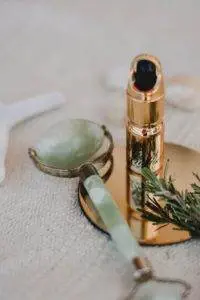
We cannot emphasize enough that glowing skin starts within. You may already have a daily skin care routine that involves cleansers and moisturizers, but for the best results, be sure to focus equally on keeping the whole body hydrated, cool, and free of toxins. No matter what age you are right now, you can start making your skin a priority with these simple practices:
- Drink water and green tea – plenty of water keeps the skin cells “plump.” Green tea has been used for centuries to help maintain clear, hydrated skin.
- Get plenty of sleep – There is solid reasoning behind the expression “I need my beauty sleep.” Our cells regenerate and repair themselves while we sleep; this is when the collagen production happens, so give your body plenty of time to do its work.
- Eat the right foods – for healthy skin, make sure to take in enough Omega 3 fatty acids (found in fish oil, good quality eggs, and fresh walnuts), and eat more cooling foods. These include: melon, cucumbers, citrus fruits, cabbage, seaweed, and other greens, mung beans, and soy foods like tofu and tempeh.
- Reduce stress – Stress negatively impacts your skin in a number of ways. Stress can contribute to acne, bags under your eyes, rashes, worry and frown lines, and dryness. Make stress reduction a top priority to improve the overall health of your skin.
- Sun Protection – Getting a little sun (about 30 minutes of exposure) every day is important for the proper functioning of your immune system, but too much sun can be damaging to the skin. Whenever possible, protect your skin with light garments and a hat; this is preferable to the constant use of cosmetic sunscreens, most of which contain potentially toxic chemicals. When you must expose more skin to the sun’s rays, use a sunscreen with natural ingredients.
Cosmetic Acupuncture Near Me
If you’ve been thinking about what sort of medical aesthetic treatments might be right for you, try cosmetic acupuncture for a more youthful look without any side effects or recovery time. There really is no down side to an acupuncture face lift; in fact, your acupuncturist can treat all of your health concerns–back pain, headache, menopause, etc.–,and add the needles for facial rejuvenation all in the same treatment session. Maybe it’s time to give yourself the gift of a little lift with cosmetic acupuncture.
*This article is for education from the perspective of Traditional Chinese Medicine only. The education provided by this article is not approved by FDA to diagnose, prevent, treat and cure human diseases. It should not stop you from consulting with your physician for your medical conditions. Traditional Chinese Medicine is based on Qi, which is an invisible force that usually cannot be observed by modern science. Because science focuses on testing ideas about the natural world with evidence obtained through observation, these aspects of acupuncture can’t be studied by science. Therefore acupuncture and Chinese herbs are often not supported by double-blind, randomized trials, and they are considered alternative medicine therapies in the United States.